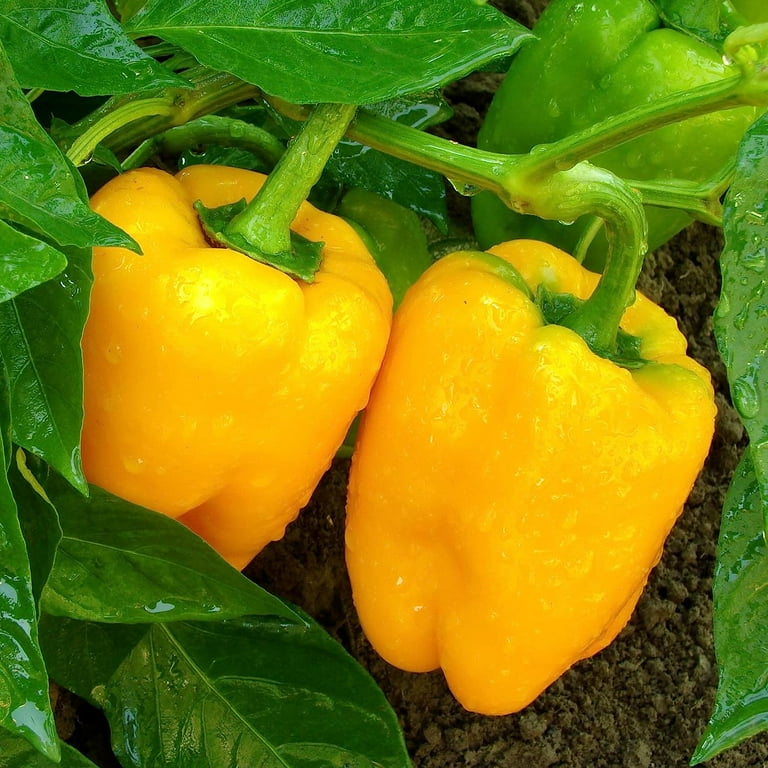Best Fertilizers for Peppers: Attain Superior Results in Your Yard
Best Fertilizers for Peppers: Attain Superior Results in Your Yard
Blog Article
Organic Vs. Synthetic Fertilizers: Which Is Best for Supporting Healthy And Balanced Pepper Plants?
In the world of nurturing healthy pepper plants, the selection in between organic and artificial fertilizers stands as a pivotal choice with far-ranging effects. While both choices aim to provide vital nutrients to sustain plant growth, the nuances of their effect on the dirt, plant wellness, and the atmosphere spark an argument that echoes throughout the horticulture area. Understanding the distinct benefits and prospective pitfalls of each plant food type is essential for pepper growers looking for to enhance their yields while keeping an eco-conscious and sustainable approach.
Advantages of Organic Fertilizers
Organic plant foods provide an environmentally-friendly and lasting approach to beneficial pepper plants, offering important nutrients without the usage of synthetic chemicals. These all-natural fertilizers are derived from organic resources such as compost, manure, bone dish, and seaweed, advertising dirt health and wellness and biodiversity. Unlike artificial fertilizers, natural options release nutrients gradually, making sure a steady and well balanced supply for pepper plants to grow.
One significant benefit of natural plant foods is their ability to boost dirt framework and water retention. By boosting soil health and wellness, natural fertilizers promote beneficial microbial activity, which assists in nutrient uptake by pepper plants. In addition, organic fertilizers reduce the threat of chemical run-off, protecting water sources from air pollution and protecting the atmosphere.
In addition, organic fertilizers contribute to long-lasting dirt fertility by advertising the growth of advantageous dirt microorganisms. These microorganisms aid damage down organic matter, releasing nutrients in a form that is easily available to pepper plants. best fertilizers for peppers. By promoting a healthy and balanced dirt ecosystem, organic fertilizers support sustainable pepper growing methods that profit both plants and the setting
Downsides of Artificial Plant Foods
Artificial plant foods, as opposed to their natural equivalents, present numerous negative aspects when used to nourish pepper plants, influencing both plant health and environmental sustainability. One major downside of artificial plant foods is their propensity to leach nutrients from the soil rapidly. This rapid leaching can result in nutrient imbalances in the soil, causing plants to struggle with shortages or poisonings. In addition, artificial plant foods can hurt helpful soil organisms, such as earthworms and beneficial microorganisms, interrupting the soil ecosystem's equilibrium.
Additionally, the overuse of synthetic plant foods can contribute to water pollution. Excess fertilizers not soaked up by plants can wash away right into water bodies, bring about eutrophication, where algae blooms deplete oxygen degrees in the water, harming aquatic life. In addition, artificial plant foods are typically obtained from non-renewable resources, such as fossil gas, adding to carbon discharges and ecological deterioration throughout their manufacturing.
Nutrient Absorption Comparison
When comparing organic and synthetic plant foods in terms of nutrient absorption, natural plant foods have the benefit click here for info of giving a more balanced and slow-release source of nutrients. Organic fertilizers consist of a selection of macro and trace elements that are not just beneficial for the plants but also promote healthy soil microbial activity, which aids in nutrient uptake.
In addition, organic plant foods boost dirt structure and water retention ability, permitting pepper plants to gain access to nutrients a lot more effectively. This improved soil quality helps with root advancement, allowing better nutrient absorption. Synthetic fertilizers, although originally enhancing plant development as a result of their high nutrient focus, might impede long-lasting nutrient absorption by degrading soil wellness with time.
Ecological Influence Factors To Consider

On the various other hand, synthetic plant foods, although usually even more focused and quickly offered to plants, can have destructive impacts on the environment otherwise used correctly (best fertilizers for peppers). Their manufacturing calls for high energy inputs, resulting in greenhouse gas exhausts and adding to climate modification. The drainage of excess synthetic plant foods can infect water sources, leading to eutrophication and hurting marine communities.
Best Fertilizer Practices for Peppers
To achieve this, it is important to comply with best fertilizer practices customized to the details demands of pepper plants. One critical technique is to do a dirt test before applying any plant foods.
An additional important method is to fertilize pepper plants at the correct time. Usually, peppers benefit from obtaining fertilizer at growing and afterwards again when they start to flower. Over-fertilizing can cause nutrition discrepancies and harm the plants, so it is vital to adhere to suggested application rates.
Additionally, selecting a balanced plant food with an NPK ratio that matches pepper plants' demands is basic. Eventually, combining artificial and organic investigate this site fertilizers judiciously can assist support healthy pepper plants while decreasing environmental effect.
Verdict

Organic fertilizers use a sustainable and environmentally-friendly strategy to beneficial pepper plants, supplying essential nutrients without the use of artificial chemicals. Unlike artificial fertilizers, organic choices launch original site nutrients gradually, ensuring a consistent and well balanced supply for pepper plants to grow.
Synthetic fertilizers, in contrast to their organic counterparts, position numerous negative aspects when used to nourish pepper plants, affecting both plant wellness and ecological sustainability. When contrasting synthetic and organic fertilizers in terms of nutrient absorption, natural plant foods have the benefit of providing an extra well balanced and slow-release resource of nutrients.Furthermore, organic plant foods enhance soil structure and water retention capability, enabling pepper plants to gain access to nutrients a lot more successfully.
Report this page